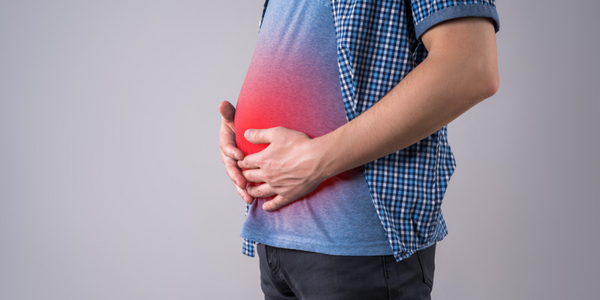As you age, your metabolism slows down, making it hard for the body to break down certain foods. This is especially true if you’re experiencing decreased digestive enzymes. Normally, these compounds help break down food so it can be easier to digest. But when there are fewer digestive enzymes, it can lead to bloating, gas, constipation, and other digestive issues. In the elderly, the pepsin output is reduced, and the stomach empties slowly, leading to indigestion.
Bloating happens when gas accumulates in your stomach, making you feel uncomfortable and bloated. A bloated stomach can make it difficult for you to perform routine activities. Here is a list of tips on reducing bloating as you age.
1. Limit Foods that Trigger Bloating
Insoluble fiber is found in whole grains and some vegetables. They’re essential for digestive health but can cause bloating if overeaten. Soluble fiber, on the other hand, is found in things like oatmeal and legumes. When you’re on a diet high in soluble fiber, it can be difficult for your body to digest food properly due to a lack of digestive enzymes. This can lead to poor digestion and bloating. Choose a diet low in fat and sugar to reduce these problems naturally.
Click here for A Complete Guide to Understanding Proper Fiber Intake
2. Use Probiotic Supplements
When the stomach cannot produce enough acid, probiotic supplements can help. Probiotics help the digestive process more than lactobacillus acidophilus. Stomach acid plays a significant role in digestion, as it helps break down food and kill harmful bacteria. In addition, probiotics stimulate the growth of beneficial bacteria in the intestines, which can improve bowel movement. Some studies have shown that those who consume probiotics develop better digestion than those who do not.
3. Eat Smaller Portions of Food

Learn why Probiotics Are Just as Important as Prebiotics for Seniors, here.
4. Avoid Swallowing Too Much Air
Air can get trapped in the digestive tract, resulting in bloating. Your diet can also influence the amount of air that gets swallowed. Many processed foods, such as fries and soft drinks, contain air and can cause excess gas. Be sure to chew your food thoroughly before swallowing, and cut down on carbonated beverages.
5. Support Regular Bowel Habits to Alleviate Constipation
Constipation is common in the elderly because their digestive systems slow down and become less efficient. Your meals and the amount of movement you do can also play a role in constipation. If you experience bouts of constipation frequently, try taking steps to increase your daily activity level to help maintain proper bowel movements. Increase fiber intake, drink enough water, and exercise more.
Water helps to lubricate the digestive tract, which makes it easier for food to move through the system and reduces indigestion. Most people don’t drink enough water, so be sure you get enough water daily.
For a list of The Best Healthy Foods to Help with Constipation as You Age, click here.
6. Avoid Rapid Weight Gain
Rapid weight gain can lead to bloating as well. You’ll need to ensure you’re getting enough exercise and eating healthy food during your senior years. If you’re taking in a lot of fats and sugars, it can trigger rapid weight gain. Try to eat smaller meals with more fiber and fewer carbohydrates to keep your stomach full of nutrients and prevent weight gain.
7. Check for Lactose Intolerance
Food intolerances can be a nuisance, they can also change as we age. A lactose intolerance, specifically, can cause bloating and cramping. Some people may have difficulty digesting dairy products because of the shortage of lactase, the enzyme that digests it. As you age, the enzyme that breaks lactose reduces. Try to avoid dairy intake if you experience lactose intolerance.
As you age, you should slowly decrease the amount of unhealthy foods in your diet. High-fiber foods can irritate the gut and cause fecal impaction, which causes indigestion. When you experiencing these symptoms, drink plenty of water and reduce your intake of carbonated foods. These foods can lead to weight gain because they slow down digestion.





